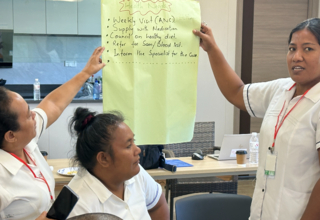CORAL COAST, Fiji – UNFPA Pacific brings together 27 humanitarian practitioners from Fiji, Kiribati, Papua New Guinea, Samoa, Solomon Islands, Tonga, Vanuatu as well as Australia and New Zealand, for the launch of the Pacific Surge Roster initiative. This is UNFPA’s first-ever initiative globally to undertake a ‘regional’ version of the Global Emergency Surge Roster, contributing to strengthening Pacific countries’ emergency response capacities, through identifying and building a pool of local humanitarian experts ready to be deployed quickly.
UNFPA, globally and in the Pacific region, is assisting Member States in making sure that even when they are hit by a humanitarian emergency - be it armed conflict, COVID-19 pandemic, earthquake, tsunami, cyclone or drought - there is a continuity in sexual and reproductive health (SRH) service provisions including emergency obstetric and newborn care (EmONC) and access to contraceptives, so that no woman should die during pregnancy or childbirth, and no woman should suffer from unintended pregnancies.
UNFPA assists member states also in ensuring the physical safety and mental health of the affected vulnerable populations during humanitarian emergencies, especially women and girls, including for the life-saving responses and care for gender-based violence (GBV) survivors.
Taking place from 8-12 May 2023 in Coral Coast, Fiji, the intensive five-day workshop is training the 27 candidates for the ‘UNFPA Pacific Surge Roster’ for various profiles who are needed in responding to a humanitarian crisis, ranging from emergency response coordination, SRH, GBV, logistics, humanitarian communications, and more. Resource persons from UNFPA offices across the globe and partners such as International Planned Parenthood Federation (IPPF) and RedR Australia are leading the lectures and simulation exercises.
The selected candidates will be deployed to a Pacific country affected by a humanitarian emergency within 48 to 72 hours upon receiving the government’s request for such deployment. Since a Pacific humanitarian expert who knows the local context well will be contributing to emergency response for a neighbouring Pacific country, this initiative exemplifies ‘South-South Cooperation,’ also in line with the spirit of the ‘Grand Bargain’ and ‘Localization’ as called for by member states in the Global South.
“This UNFPA Pacific Surge Roster makes eminent sense because, one, the Pacific region is particularly prone and vulnerable to emergencies, especially climate-induced disasters and health pandemics,” Iori Kato, Director of UNFPA Pacific Sub-Regional Office (PSRO) affirmed in opening the training.
“And two, the Pacific countries are isolated, which makes it rather difficult to secure surge reinforcement in a timely manner if deployed from outside the region.” He emphasized the importance of investing in the Pacific local talents as an effective way for building resilience of the communities and realizing sustainable development of the “Blue Pacific Continent” by 2050.
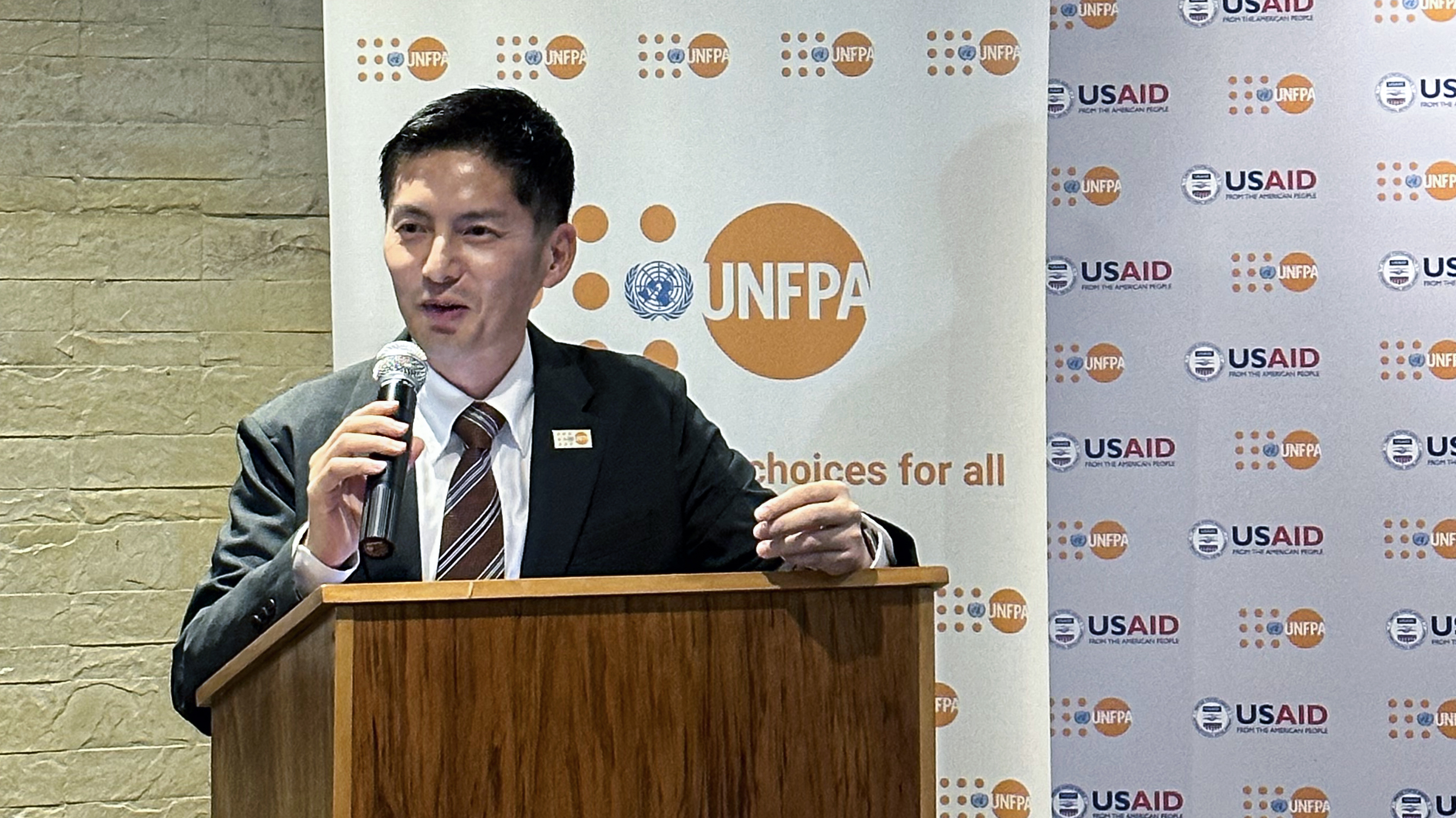
“By bringing together participants from different Pacific countries, we will see more Pacific islanders trained to take on surge assignments to localize humanitarian response in our own region. The training is a great initiative because, as the Pacific islanders, we have a better understanding of our cultures and sensitivities in certain response activities," said a participant, Darren Wynn, Emergency Logistics Coordinator of UNICEF Papua New Guinea Country Office.

Right: Mr. Michael Glees, USAID Senior Development Advisor for Pacific Islands engages in one of the hands-on simulation exercises.
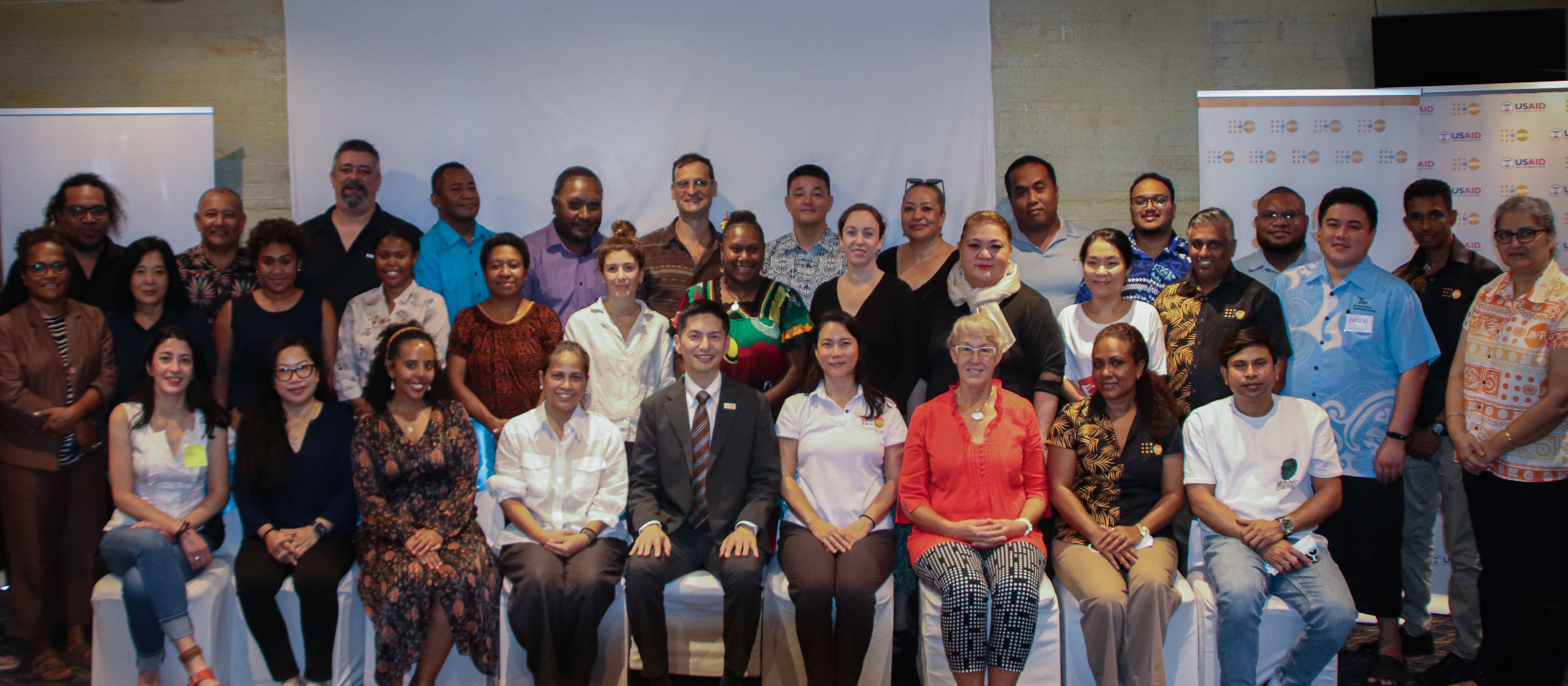
Another candidate highlighted the importance of communications in humanitarian action. Ariella Zibiah, Communications Consultant and PhD student from Fiji, said, “Communications play a critical role especially in the first 72 hours of an emergency: both for internal and external purposes and audiences. It keeps our own staff informed, while ensuring that much needed life-saving information is reaching the communities, women and girls and young people whom we are working for.”
UNFPA’s groundbreaking initiative to establish a Pacific-focused roster of humanitarian experts for SRH and GBV is made possible by the generous funding from the United States Agency for International Development (USAID) Bureau for Humanitarian Assistance (BHA).
________
UNFPA Pacific is a sub-regional office of the United Nations Population Fund based in Suva, Fiji, dedicated to promoting the health, rights and well-being of women, girls and young people in 14 Pacific island countries and territories, currently through the implementation of its 7th five-year Multi-Country Programme (2023-2027). As the UN sexual and reproductive health agency, UNFPA seeks to ensure that every pregnancy is wanted, every childbirth is safe, and every young person's potential is fulfilled. By addressing the unique challenges faced by Pacific countries and building resilience against climate change-induced disasters and throughout the humanitarian-development-peace nexus, UNFPA Pacific empowers national governments and local actors to effectively prepare for and respond to emergencies and attain sustainable development.
For media enquiries, please contact:
Ana Maria Leal, UNFPA Pacific Humanitarian Coordinator, leal@unfpa.org
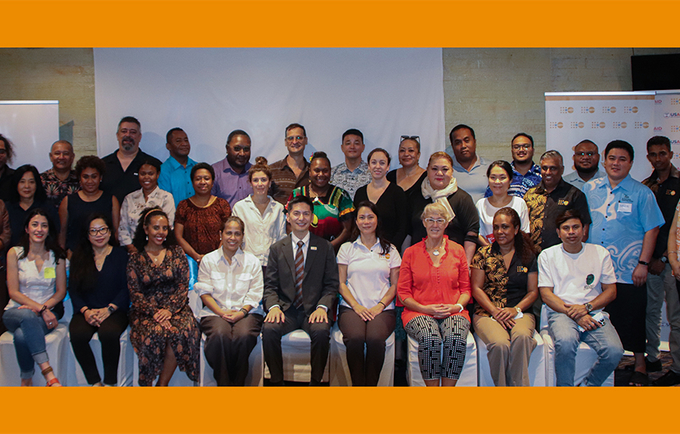

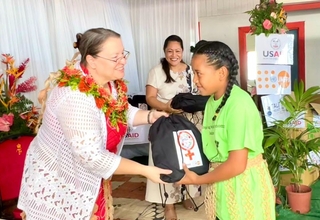
![Members of the local women’s group in Korotubu village use materials provided by UNFPA to make products to sell and exhibit in the Seaqaqa District Expo [Photo: Asenaca Tinairavonu] Members of the local women’s group in Korotubu village use materials provided by UNFPA to make products to sell and exhibit in t](https://pacific.unfpa.org/sites/default/files/styles/new_home_card/public/news/resized_9.jpg?itok=3kWbvKBi)
